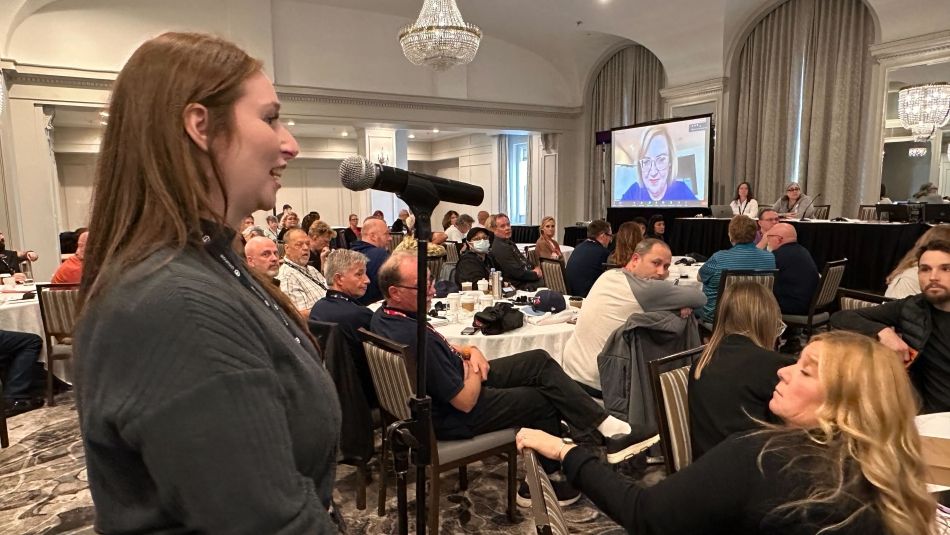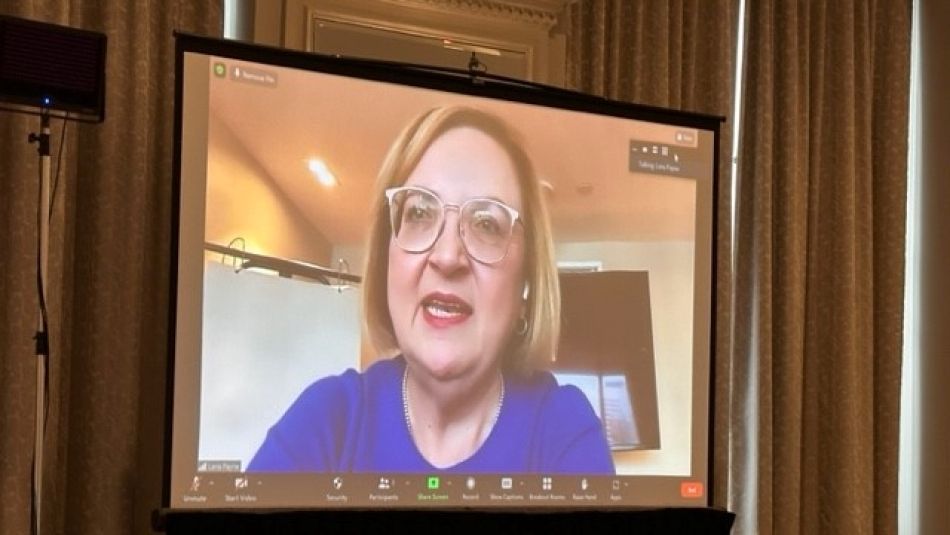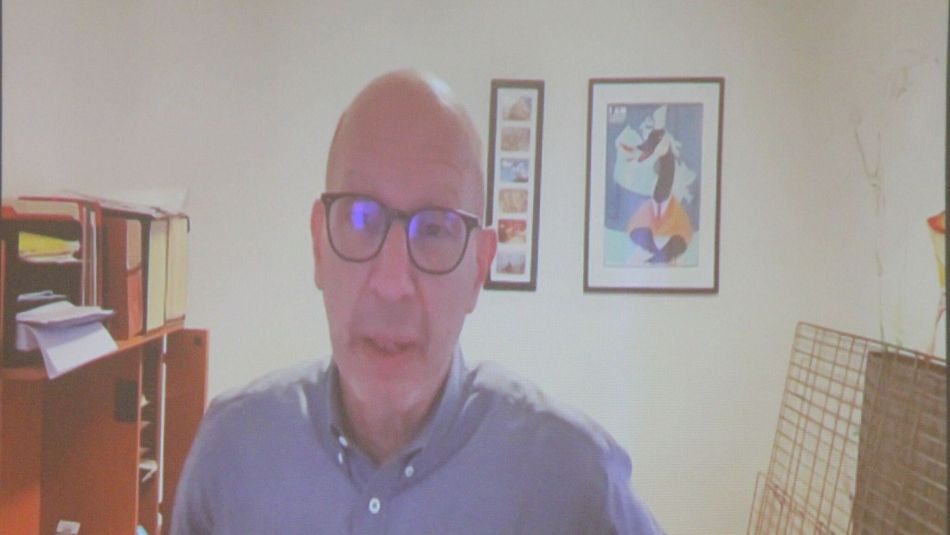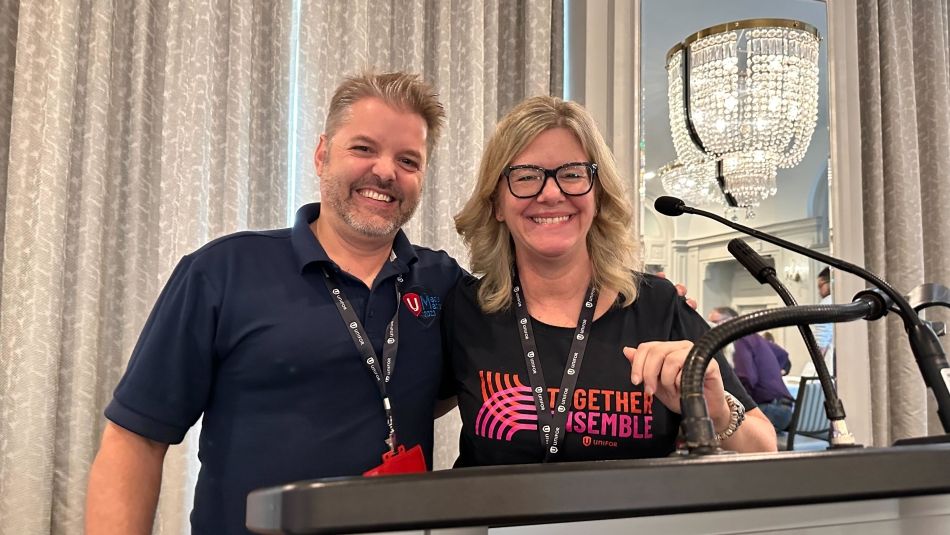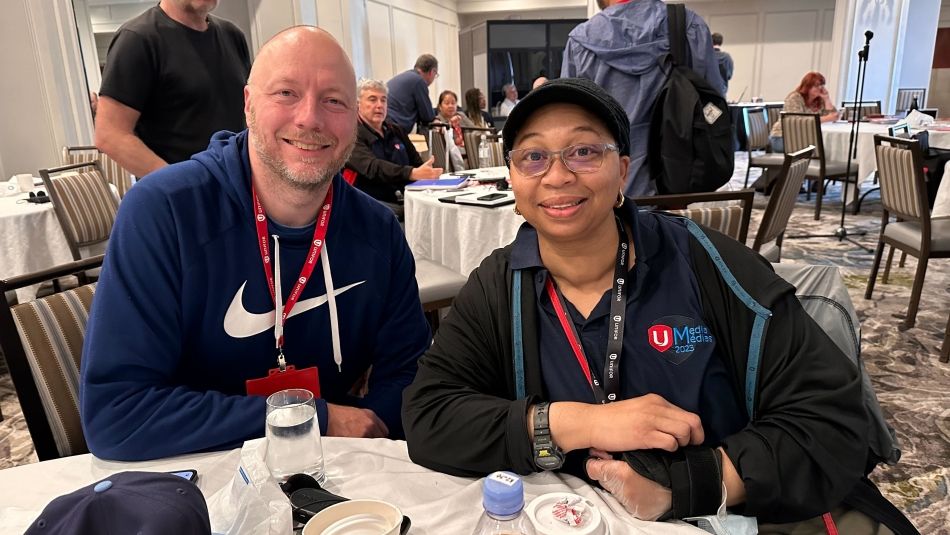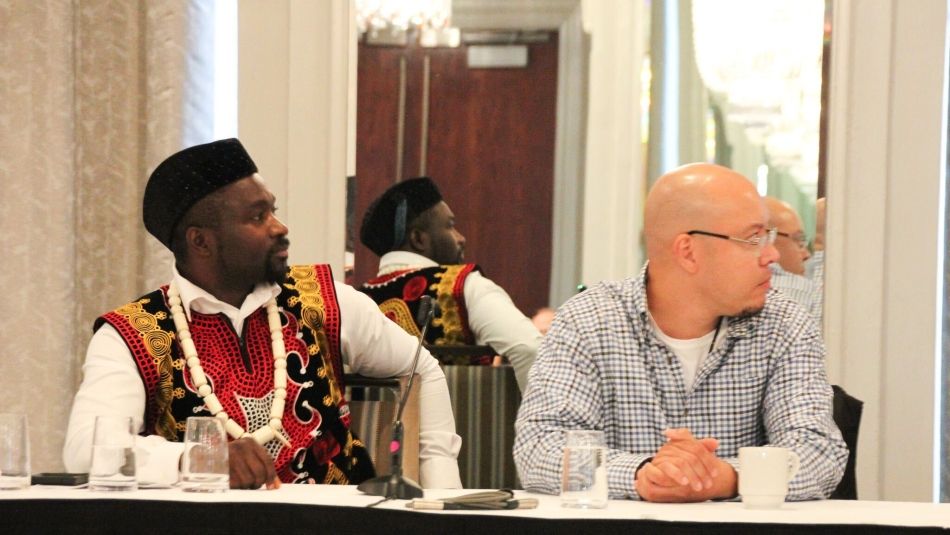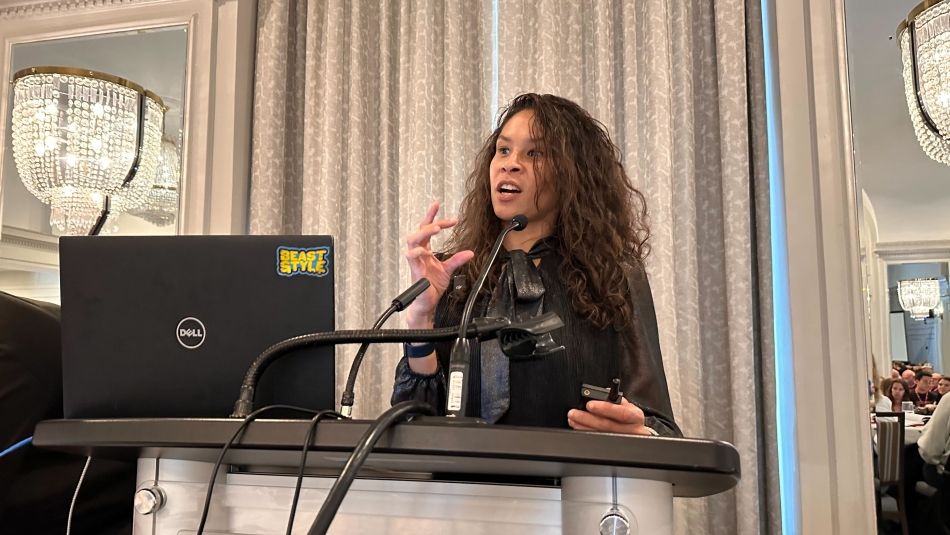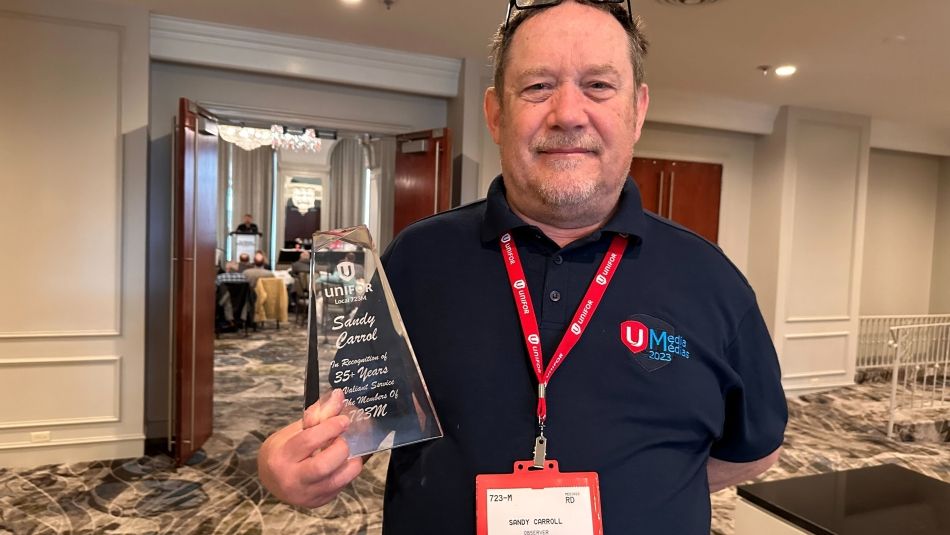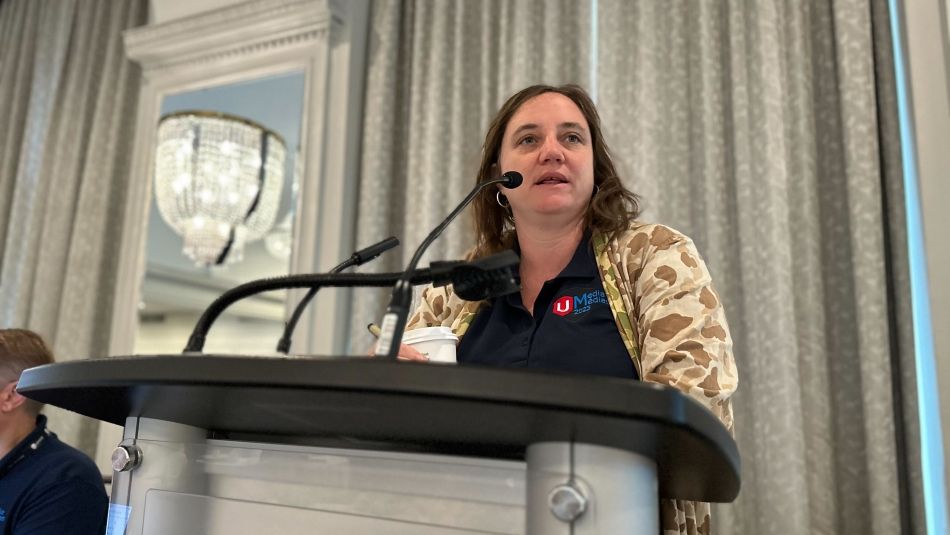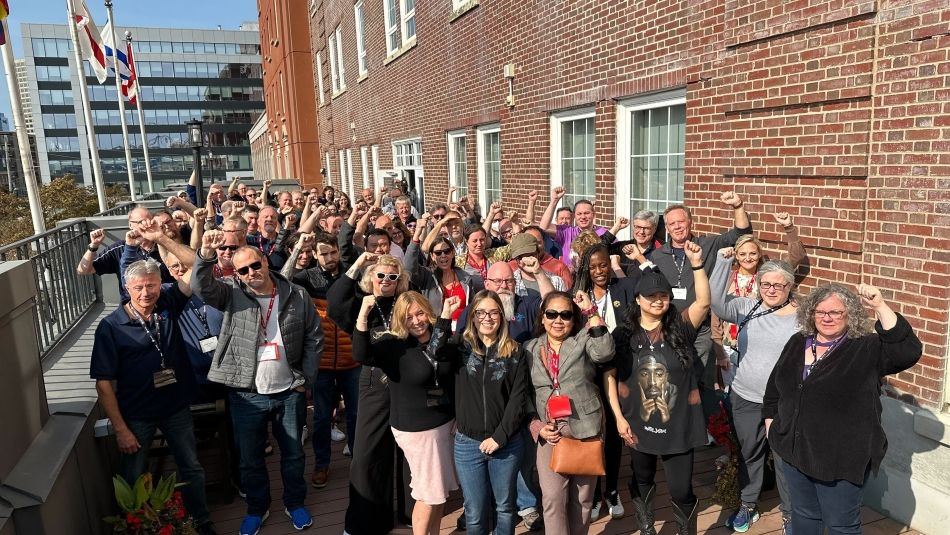
Share
The impact of big tech, shrinking revenues and increased job cuts in the media sector, race and reporting, and harassment of journalists were among the headline discussions at this year’s Unifor Media Council, held Sept. 22 to 24 in Halifax.
Unifor National President Lana Payne spoke to the 100 delegates via Zoom and acknowledged media workers have had their share of hardships over the past years, including 2023.
“It’s been brutal out there. And we know despite many victories—some in bargaining, some in organizing, and some legislatively—we have some very big challenges,” she said.
Some challenges are the hate and harassment journalists face on a daily basis on-the-job or online, often anonymous right-wing vitriol. Media workers continue to have “fake news” thrown at them when, in reality, they are upholding democracy and providing communities with fact-based journalism.
Media sector layoffs continue to be a major concern for Unifor members, she said. There have been roughly 368 job losses for Unifor members working in the media since the beginning of the year.
“All of these [layoffs to date this year] were devastating for our members and devastating for the state of local news in this country,” said Payne. “I have repeatedly said that Canadians need to start paying attention because one day they will wake up and there will no longer be any local news.”
Unifor will continue to advocate for safer workplaces for media workers, guard against job loss from artificial intelligence (AI) by protecting work through collective bargaining, Payne said. The union will also keep fighting for legislation to force big tech to pay up.
“Don’t discount your victories,” she said. “Fighting big tech is not for the faint of heart. Fighting for legislation even if it is imperfect is still a great win.”
Keynote speaker Howard Law, a retired Unifor national representative, took the stage on the first day to speak about how big tech giants are impacting Canadian news media.
In particular, the American lobby group Computers and Communications Industry Association (CCIA)—which does the bidding of Amazon, Apple, eBay, Twitter, Uber and Yahoo, among others—tells the U.S. Congress that Bill C-11 discriminates against U.S. companies by setting terms of an equitable contribution to Canadian content by American streamers.
CCIA also claims that Bill C-18: the Online News Act, discriminates against U.S. companies in requiring compensation for news content despite the fact that the same terms would apply to any Canadian version of Google and Facebook if there was one.
“Nobody seems to be saying loud enough that what's happened here is that Facebook, and Google, for that matter, created a market for the distribution of news through social media and search,” said Law, “and after establishing their monopolies in those markets, use that market power against Canadians in order to sabotage Bill C-18 by blocking Canadian news.”
The Canada-U.S. split-run magazine dispute in 1999 can serve as a cautionary tale now, he said, when Sports Illustrated found its way around the Canadian tariff code that prohibited companies from physically importing split-run magazines into the country by transmitting the publication to printers in Canada via satellite.
“Before the sanctions could go into effect, Canada caved,” explained Law. “A final deal on split-run magazines allowed Sports Illustrated and any imitators to publish so-called Canadian editions with low advertising rates provided they had a more generous sprinkling of Canadian content.”
That could mirror the same outcome for when the CRTC applies Bill C-11’s Canadian content rules to Netflix and Disney and Apple and Amazon and YouTube, said Law, as Hollywood has its sights on watering down Canadian content rules.
“The lesson from the split-run magazine dispute was this: the 900-pound gorilla gets the banana,” he said.
“When it comes to the media industry, California has always bullied Canadian media, and it always will. We have to stand up and stand together. Our union has always done this and that’s what makes me proud.”
Unifor Media Council Chair Julie Kotsis said Media Council is a place for media workers to gather and form strategies to help combat the threats against Canadian media. Black and Indigenous workers and workers of colour within the news sector are disproportionately the targets of this abuse.
“These threats have a chilling effect on media workers, who sometimes hesitate to cover events or topics that tend to trigger these attacks. And that is bad for democracy. Local news is critical,” she said.
“It’s an uphill battle, but we are determined to continue to fight for our members and for the future of Canadian journalism.”
Unifor Media Director Randy Kitt addressed the ongoing fights in the media sector, including harassment against journalists, C-18, C-11, but also low enrolment at post-secondary journalism programs, precarious work of freelancers, and AI.
The speech felt artificial and had significant flaws, but the messaging was still “kind of bang-on,” he said. “So that’s why we have to be vigilant to protect ourselves and to not let AI take over our work.”
A discussion panel on being Black in journalism inspired deep conversation about representation, community stereotypes, and how to recruit and retain Black and workers of colour in media.
Global News journalist Amber Fryday said when she began her career, she was the only journalist of colour.
“I am racially ambiguous,” she said. “I heard a lot of comments in the newsroom, some people not knowing that I am Black…like, don't take your car there, you’ll get shot. There's a lot of lack of understanding of the communities because of this.”
Valentine Nkengbeza, a CTV Atlantic journalist, said wars like the one in the African country Cameroon, may be missed because of racial bias.
“Millions of people have been displaced, hundreds have been killed,” he said.
“But those things have not been covered the magnitude of which you cover others. And it's because you're not at that table when those [editorial] decisions are being made. If you’re not at the table, you’re probably on the menu.”
Poet/journalist El Jones led a talk which dissected why systemic racism has led to unfairness in the coverage of Black communities. She said there is a tendency to protect white people, often by blurring their faces in photos, while news coverage of Black communities often has a photo of police attached to it, contributing to the conviction of Black men.
“We have to be mindful…of the effect,” she said. “Experiences of Black people are never validated. Ask yourself: Is this description relevant and what is the effect of this description?”
Lisa Taylor spoke on behalf of the Worlds of Journalism Study, an international comparative research project, which assesses the state of journalism throughout the world. She said when comparing Canadian journalists to their global peers, there seems to be more neutrality in reporting.
“Our journalists report a stronger sense of the need to be detached observers—quite frankly, tell it like it is, as they are,” she said.
“Canadian journalists are firm in their belief that it’s not their job to promote government policy. But even when we look at Canadian journalists relative to U.S. and other Western democracies, Canadian journalists are more focused on this role.”
Unifor delegates also honoured Sandy Carroll, who retired from Local 723M after more than 35 years of service, but continues to be active in the union. He was one of the founding organizers of Media Council in 1993 at the CEP, which became a model for industry councils.
“It’s been a rewarding experience and the greatest and biggest thing I’ve ever done,” said Carroll. “It’s all about the people.”
The council elected three new trustees: Colin Freeze, Sarah Ryan and Brian Gibson.
Kotsis, Kitt, Unifor researcher Marc Hollin and Perry Frigault from Unifor NABET 700-M shared with the group the union’s updated Media Policy.
On the last day of the council Megan Kinch, who runs social media for Media Action Plan, addressed how social media intersects and impacts the continued harassment of journalists. She also addressed the issues with C-11 and C-18.
While the public builds and invests in social connections on social media platforms, the companies that own them, such as Meta and Google, don’t care about the social connections themselves and the work needed to maintain it, said Kinch.
“Everything is just getting worse [on these platforms],” she said. “It’s wrecking communications and media.”


